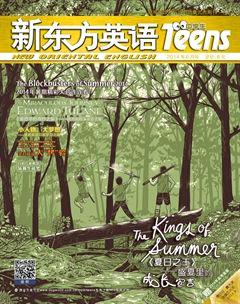闲暇
◎ By William Henry Davies
译·赏析 / 辛献云
What is this life if, full of care,
We have no time to stand and stare.
No time to stand beneath the boughs
And stare as long as sheep or cows.
No time to see, when woods we pass,
Where squirrels hide their nuts in grass.
No time to see, in broad daylight,
Streams full of stars, like skies at night.
No time to turn at Beauty's glance,
And watch her feet, how they can dance.
No time to wait till her mouth can
Enrich that smile her eyes began.
A poor life this is if, full of care,
We have no time to stand and stare.
赏 析
威廉·亨利·戴维斯(William Henry Davies, 1871~1940),20世纪英国著名诗人和作家。他出生在英国纽波特城祖父的家里,自幼丧父,后又被母亲抛弃;十几岁便辍学当学徒,打零工;二十多岁到北美流浪,后在加拿大意外失去一只脚。1905年,34岁的戴维斯才出版第一本诗集《灵魂的摧毁者及其他诗歌》(The Soul's Destroyer and Other Poems)。戴维斯一生大部分时间都在英国和美国游走,其诗作多为旅行见闻和对大自然及普通贫苦人家生活的描写。
现代人的生活忙忙碌碌,节奏越来越快,压力越来越大。许多人鲜有时间停下来,享受自然,品味生活。人们似乎忘记了忙碌的意义何在,人生的目的何在。戴维斯的《闲暇》一诗就是对这种人生态度的反思。人生原本多烦忧,我们却只知辛苦劳碌,从不愿停下甚至放慢匆匆的脚步,连生活中最美好的东西都无暇欣赏,这样的人生又有何意义呢?诗人以设问开头,以自答结尾:“这样的人生实在可怜。”全诗构思精巧,首尾呼应,音律和谐,读起来朗朗上口。诗人看似只是奉劝人们在忙碌之余也停下脚步,歇一歇,欣赏一下自然的美景和人生的美好,实则反映了诗人对生活意义的思考,对人生价值的探索。小诗虽短,却投射出一种恬淡、闲适的人生哲学,大有“采菊东篱下,悠然见南山”之情趣。endprint

